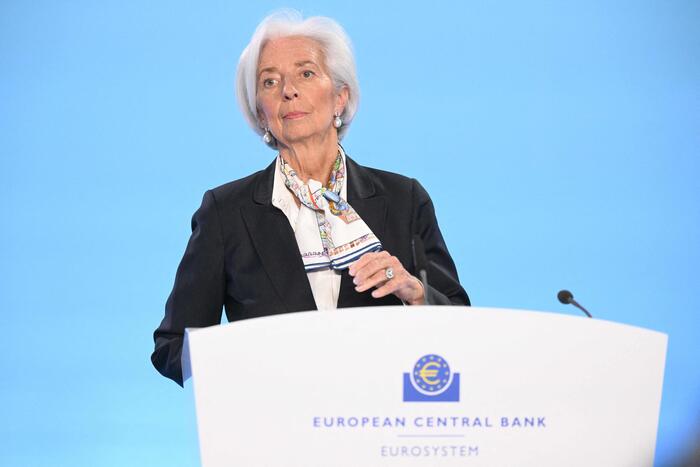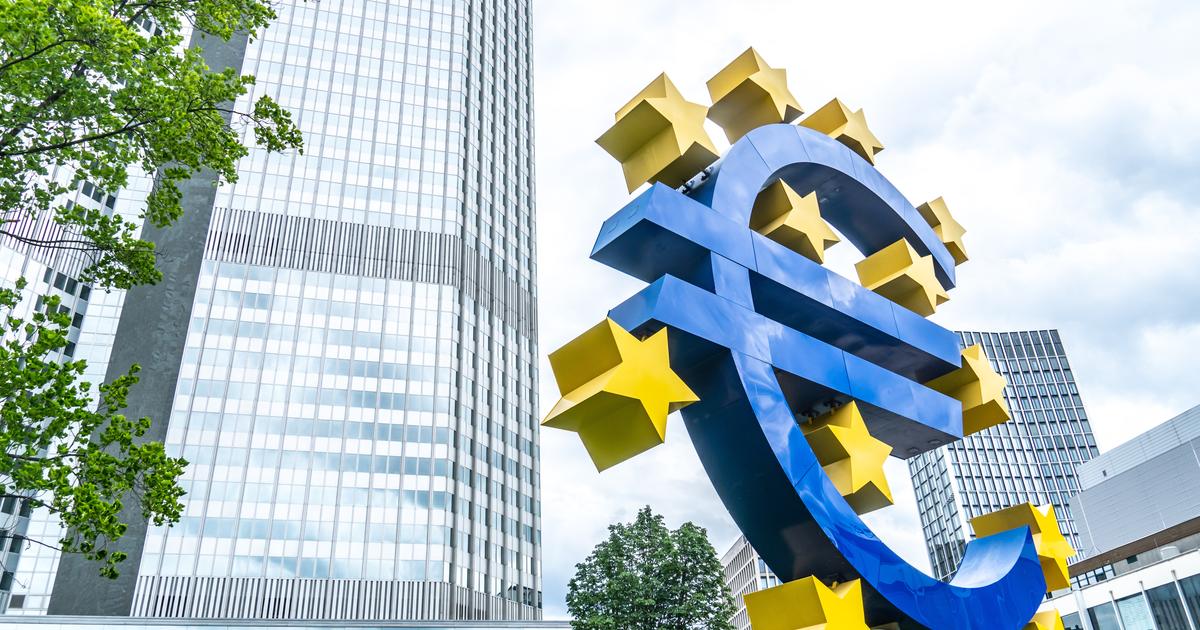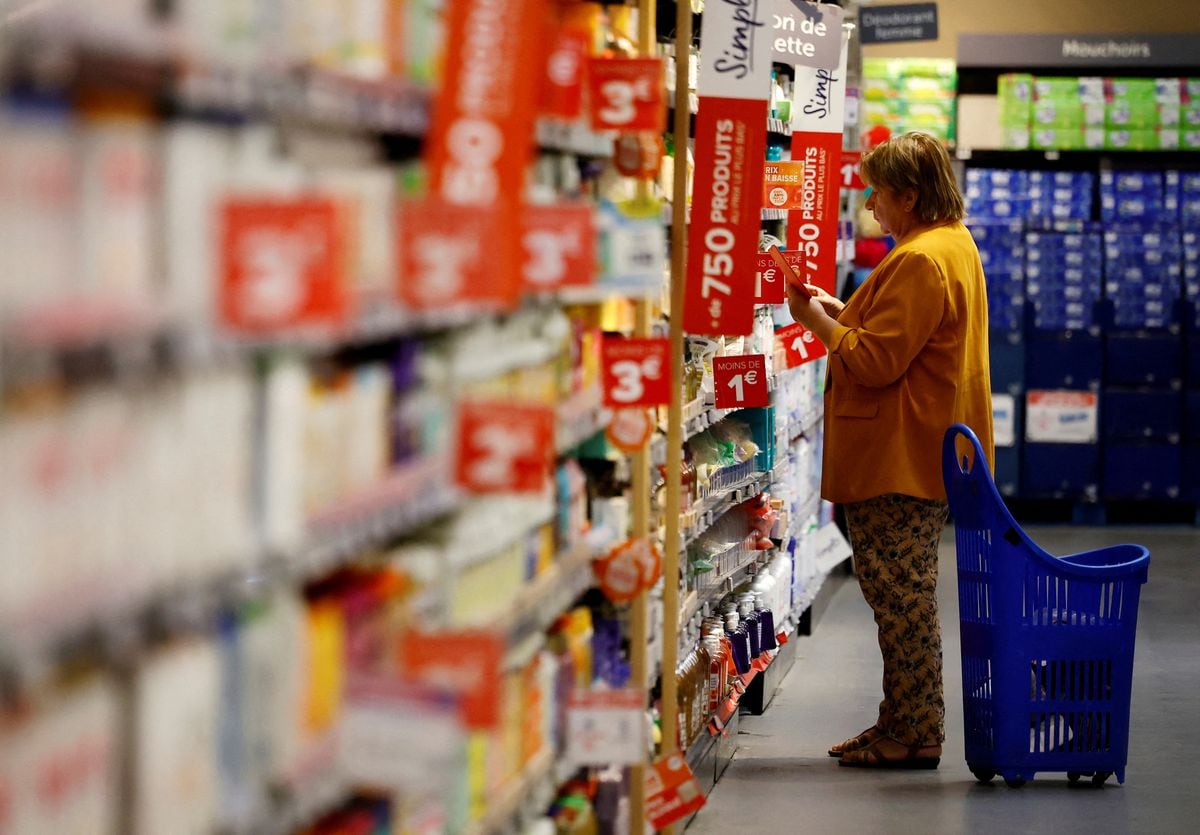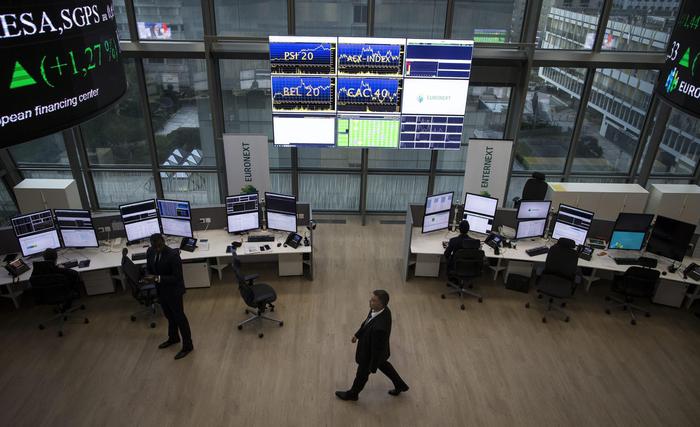Enlarge image
ECB boss Lagarde
Photo: THOMAS LOHNES / AFP
The nagging is great.
The statistical offices have been reporting high inflation rates for months.
And Europe's central bank boss still does not want to offer the prospect of higher interest rates - as would be the case with inflation, according to the textbook.
Something like that, critics rumbled even before Christine Lagarde announced her relaxed attitude on Thursday.
Isn't that crazy?
The first common answer is that inflation is currently only temporarily higher - due to temporarily higher energy prices and one or the other tax effect. And therefore will decline even without higher interest rates. Most likely. The second answer could be: Even if that didn't happen that quickly, higher interest rates wouldn't solve the problem at all - but would result in serious secondary damage. It is quite possible that there are significantly better means of counteracting the decline in purchasing power - and another solution for Europe's monetary watchdog.
According to the textbooks, inflation occurs when the economy overheats and too much money is spent - more than businesses can supply. Then it can make sense to raise interest rates, make loans more expensive and thus curb debt-financed expenditure. Until the economy has slowed down to such an extent that companies cannot and do not want to raise prices due to the sheer lack of sales.
Logical. However, this has little to do with the situation in the second year of this historic pandemic. At least in the euro area. First of all, the economy is not overheating; Incoming orders for industry are falling and the economy would have an average of ten percent free capacity, estimates the Kiel Institute for the World Economy (IfW) in its new forecast. Second, there are no classic signs of an inflation spiral. If prices rise, it has more to do with sales tax rates that have been lowered and raised again in the meantime. And with a CO₂ tax introduced in January. And with global delivery bottlenecks caused by the pandemic, which lead companies to raise prices. And above all with drastically increased prices for oil and other raw materials on the international markets.
If you take the energy prices out of the bill, it becomes clear that there is no such dramatic increase in the rest of the prices - at around two percent it is at least not much higher than usual.
Would higher interest rates on local deposits and loans change any of these things? Unlikely. That would neither reverse the increase in taxes nor technically change anything about delivery bottlenecks in the Suez Canal or the port in Rotterdam, where the containers are stowed. And the trends on the international energy markets would certainly not be particularly impressed. Unless, and this is where it becomes critical, when interest rates lead to less spending and less investment, the already slacking economy tips over and demand adapts to the temporarily restricted conditions caused by the crisis - downwards: Fighting inflation through a crisis that has been brought about; and without eliminating the causes. You probably only come to that as an old-school economist.
That would be a bit like if the doctor always prescribes amputation for bruises on the thigh (of course, purely fictional example).
Then the bruise is gone.
But also the beautiful leg.
Not optimal.
And grotesque: because central banks have to deal with the problem anyway that, according to the classic theory, they can only raise and lower one interest rate that has a very general effect - not several, one of which only applies to sectors that drive prices and others not.
Such a club of interest would seem all the more absurd in a situation in which the new traffic light government is trying to drive companies to invest more in climate rescue and digital equipment through cheaper depreciation.
In the end, there would be sales crises and more unemployed - and less spending on the climate.
And there may also be panic on the financial markets, as the portfolios have so far been put together in such a way that they generate returns with persistently low interest rates.
All of this could happen without necessarily causing inflation to go away.
The current bottlenecks have already been enough to "slow down the recovery for the time being", according to the Kiel economists.
Without a leg of interest.
Even the occasional reference to supposedly structural inflation risks does not improve this.
Inflation neurotics like to believe that wages "threaten" to rise faster again due to decreasing globalization pressure and increasing shortages of skilled workers.
A danger?
After a few decades of low-wage pressure, that would be a success for mankind - because no society can withstand such a thing in the long term.
If there is a shortage of skilled workers, according to Adam Marktwirtschaft Riese, wages must also become more attractive.
That will not lead to hyperinflation either.
Everything else is old-liberal high ideology.
Friedrich Merz no longer dares to represent herself today.
Which would really help
That's why you don't have to freeze into fatalism in the face of higher prices - and leave people with more expensive bills, especially when it comes to energy prices.
It just needs other means than the old key interest rate, which threatens to do more harm than good - and does not remedy the causes.
If the consequences of a pandemic are one of these causes, then everything is currently helping against inflation that will save us the next waves - and resolve the delivery bottlenecks.
One or the other measure to break down trade barriers could also contribute to this.
It would also help not necessarily to increase the next taxes - or to lower sales taxes and raise them again.
Instead, the Würzburg economist Peter Bofinger suggests lowering CO₂ taxes whenever crude oil and energy prices have risen all too abruptly, because market energy prices then give incentives to save fossil fuels.
And conversely, raise the levy all the more if energy prices and incentives crash again.
The advantage: For consumers and businesses alike, gasoline and other fossil fuels could become more expensive and predictable, instead of fluctuating erratically depending on the mood on the commodity markets or in the palaces of oil producers such as Russia or Saudi Arabia - with the panic consequences that can currently be observed.
more on the subject
The ECB's hesitant course: Madame Lagarde's nerves An analysis by Tim Bartz
Interest rate decision by the US Federal Reserve: Why Biden is sitting in the passenger seatBy Ines Zöttl, Washington
Central banks: ECB - the hesitant central bankA column by Henrik Müller
Because of inflation: World Bank President calls for a change of course in monetary policy
According to Bofinger's diagnosis, given the already high energy prices, it would be good to suspend the increase in the CO₂ tax planned for January, which is sensible in terms of climate policy, until the price high is over.
That may frighten supporters of drastic CO₂ pricing policies. In the long run, however, it could even be more sensible for the climate. There is no point if people no longer go along with them and, due to a decline in purchasing power, the growing acceptance of such climate policies is gone again - and the central bank is at the same time urged to raise its interest rates. If only that leads to (private) investments in climate rescue being slowed down in the end. For the much-cited switch to a climate-neutral economy, it is probably more important that it can be planned in the long term - and that the chances of saving the world do not fluctuate with the capers on the energy markets.
If there is something wrong with the attitude of the euro central bankers, then it is less the assessment of inflation.
The problem is and always has been that the monetary authorities tried to get money into circulation through the financial sector.
Which brought with it the problem that the money was then invested quite a bit in stocks or real estate.
Financial magic.
The alternative would have been to send the money directly to the people, say British-American economists Mark Blyth and Eric Lonergan.
Then a lot more money would have been spent in real terms - and in case of doubt there would also be good reason to raise interest rates again if the economic situation was more robust.
In any case, all of this would be more sensible and glorious than simply rumtata, according to textbook formulas from pre-pandemic times of good weather, to raise key interest rates against possibly only temporarily higher inflation - and leave people with less money.









